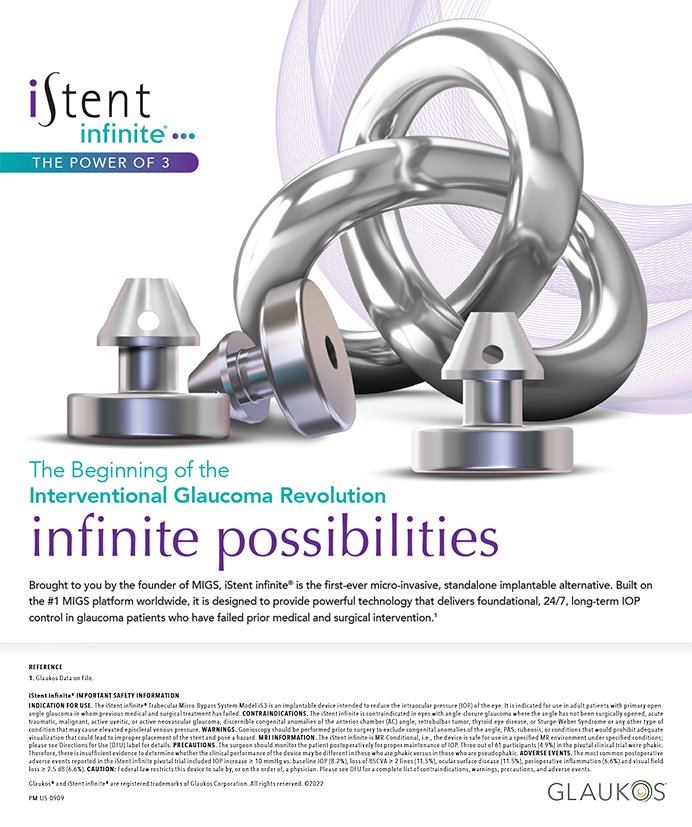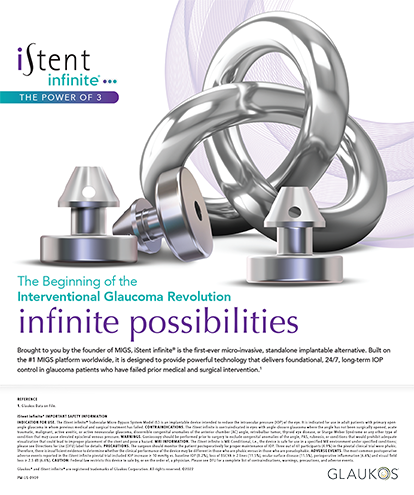I enjoy playing golf. There is something therapeutic about taking that stroll on a summer’s day with good friends. I am not really very good, but I usually hit at least one memorable shot a round that keeps me coming back. Even if I don’t, I always have the opportunity to heckle my friends when they play poorly, which, oddly, I find even more enjoyable than when I hit that elusive good shot myself. Playing golf in my foursome is not for the faint of heart.
I wrote this editorial while returning from a major ophthalmology meeting. I know that I will improve the care of my patients because of the time I spent there. I attended the lectures, and when they were over, I played golf with a group of friends who return to this meeting every year. I paid for my own airfare as well as the golf. In today’s political environment, I am afraid to admit I also enjoyed myself. Whether you play golf, ski, attend the theater, or just sit on the beach, the prevailing opinion seems to be that we are not allowed to enjoy ourselves when we attend a meeting. Many academic institutions, companies, and ophthalmic organizations no longer allow meetings at resorts out of fear of being perceived as trying to influence physicians and in some way reduce the integrity of the education.
I recently attended a meeting with a CME luncheon sponsored by industry. There were several barren tables with little signs that read, “Table for Massachusetts physicians.” Massachusetts physicians may not accept a cup of coffee from industry while attending a lecture outside of a medical environment. In July 2009, Massachusetts enacted its Pharmaceutical and Medical Device Manufacturer Code of Conduct. The toughest pharmaceutical marketing rules in the country so far, the regulations have far-reaching ramifications for health care meetings. While attending the ASCRS meeting in Boston last month, I could not help but ask a very simple question: Why are ophthalmologists (or any physician group) bringing tens of millions of dollars into the economy of a state that clearly does not trust or value physicians?
Despite the variety in our practice patterns (eg, private practice, academics, consultancy to industry, leadership in organized ophthalmology), I do not believe that my golfing colleagues and I differ significantly in our ethics when it comes to the sport or ophthalmology. The Council of Medical Specialty Societies would disagree. The organization released a code for its membership that was signed by the AAO. The Council of Medical Specialty Societies holds that it is in the best interest of its membership and of patients not to allow its leadership to have consulting agreements with industry. I would argue that virtually every major advance in ophthalmology (eg, phacoemulsification; foldable IOLs; the Nd:YAG, excimer, and femtosecond lasers; and most pharmaceutical agents) has been developed, refined, and brought to market through close relationships between industry and consulting physicians.
On a positive note, the FDA recently reversed a long-standing policy to allow consultants to participate on panels. The agency has thus recognized that the most talented and knowledgeable physicians often work with industry. I hope that the AAO will follow the FDA’s lead and allow its leaders to continue to collaborate with industry in their joint efforts to advance and improve patients’ care.
This issue of Cataract & Refractive Surgery Today focuses on how to add refractive surgery to a cataract practice and features two articles on how to manage some of the most complex cataract surgical cases—eyes with weak zonules. These series continue CRSToday’s tradition of providing a comprehensive approach to teaching new techniques, and they are a useful reference. If the weather is nice outside, however, save the issue for later and spend some time outdoors doing something you enjoy. I am going to work on my putting.
Eric D. Donnenfeld, MD
Chief Medical Editor


